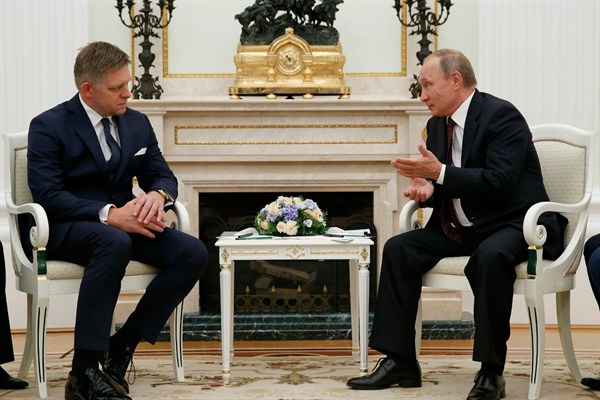BRATISLAVA—Slovakia, a NATO member that has called itself part of the “core of the European Union,” may talk positively about its Western orientation, but its actions recently suggest an increasingly closer alignment to Russia and its interests in Europe. Many observers point to the junior partner in its coalition government, the Slovak National Party, or SNS, as the reason why. The party’s nationalist, euroskeptic leader, Andrej Danko, the speaker of the Slovak parliament, has visited Moscow twice in the past eight months.
Earlier this month, Slovakia’s Defense Ministry, which is headed by a member of the SNS, postponed a long-awaited decision to replace Slovakia’s fleet of aging Russian-made MiG-29s with Swedish Gripen fighter jets or U.S.-made F-16s. The move was widely criticized, including by members of the ministry’s own leadership as well as partners in the coalition government. Defense Minister Peter Gajdos had put the years-long talks with Gripen’s manufacturer, Saab, on hold and invited other bids.
Just a few months ago, the SNS, according to sources in the Slovak government and others in Bratislava, had blocked Slovakia from joining the mass, EU-wide expulsion of Russian diplomats over the poisoning of ex-Russian spy Sergei Skripal and his daughter in the United Kingdom. During a Slovak Cabinet meeting in late March in which the expulsions were discussed, “Danko said expressly that no Russian will be kicked out as long as he is in the coalition,” Juraj Krupa, a former Defense Ministry official who now directs the security and defense program at the Slovak Security Policy Institute, told me, citing sources within the government. Two officials, one from the Foreign Ministry and the other from the European diplomatic service, later confirmed that account. Both officials insisted on anonymity to discuss internal government matters.

